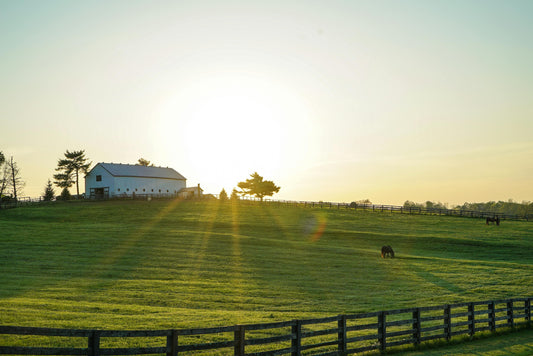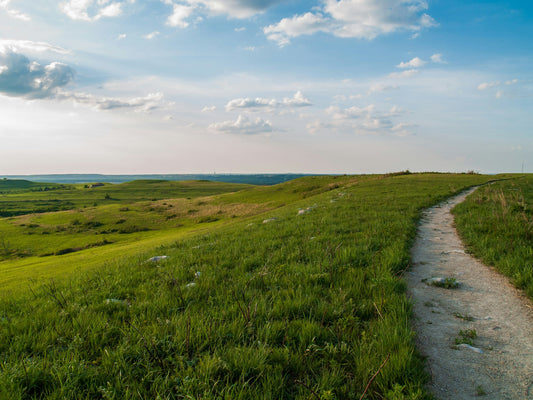Sleepwalking: Does THC Help?
Sleepwalking is a condition experienced by a fair share of the public. A 2016 analysis of 51 studies of 100,400 people found that 6.9% of subjects experienced sleepwalking at some point. Five percent of children and 1.5% of adults experienced one or more sleepwalking spells within the past 12 months of the study [1].
Sleepwalking has existed for ages but has only been studied since the 19th century. Like most sleep disorders, we still lack critical findings to understand how sleepwalking occurs [2]. With scant conclusions and solutions so far, people have turned to countless medicines, herbs, remedies, and more in an attempt to address their condition. Cannabis is an option that has gained momentum over the past several decades.
But does cannabis, specifically Delta-9 THC, help with sleepwalking? Read on to discover what we know about THC, sleepwalking, and any possible connections discovered so far.
What is Delta 9 THC?
Much like sleep disorders, we've only begun to understand cannabis on a deeper, essential level. Not too long ago, most people only knew that smoking weed made them feel a bit loopy or high. Today, we understand that feeling is generated by the most prevalent compound in this complex, often highly beneficial plant: Delta 9 THC.
That psychoactive high feeling is generated by the cannabinoid Delta 9 THC, a compound found in hemp and cannabis. THC is categorized in the structural compound class known as a cannabinoid.
An untold number of cannabinoids are found in the plant. The number is debated, with clinical studies reporting that cannabis contains anywhere from 60 to more than 100 cannabinoids among its various strains [3] [4]. Cannabinoids comprise just a portion of the several hundred compounds a strain may contain.
Of all the cannabinoids, Delta 9 THC is the most prevalent. Better known simply as THC, Delta 9 has been the prime focal point of the plant in the modern era and likely since the plant became known around the world.
THC helped bring cannabis into the spotlight during the prohibition era and the war on drugs, with its wide-ranging medical and recreational benefits being tested by countless consumers across the globe. Governments around the world, spearheaded by the United States, didn't like what THC was doing to the masses and helped pass decades of prohibitions that continue to exist in the US, many of its states, and countless countries around the world.
THC's popularity has maintained despite prohibition efforts. This prolonged popularity is likely due to the oft-reported and growing clinical evidence that shows THC and other plant compounds can play a role in addressing mental and physical pains, including [5]:
- Sleep Disorders
- Addiction
- Amyotrophic Lateral Sclerosis (ALS)
- Anxiety
- Cancer
- Chemotherapy-Induced Nausea and Vomiting
- Chronic Pain in Adults
- Dementia
- Depression
- Dystonia
- Epilepsy
- Glaucoma
- Huntington's Disease
- Irritable Bowel Syndrome (IBS)
- Multiple Sclerosis (MS)-Related Spasticity
- Parkinson's Disease
- Posttraumatic Stress Disorder (PTSD)
- Tourette Syndrome
- Traumatic Brain Injury/Intracranial Hemorrhage
THC's wide-ranging reported beneficial effects come thanks to the cannabinoids' often positive impact on consumers. THC binds to the body and mind's CB1 and CB2 receptors, crucial components in the endocannabinoid system, a complex system that regulates many human functions [6].
These effects have been linked to the numerous benefits listed above. However, many require additional lab analysis to confirm the decades of anecdotal evidence.
Comparing Delta-9 with Delta-8 and Delta-10
Marijuana plants contain anywhere from .4% to more than 30% THC. Hemp plants often have 5% to 15% CBD, with federal law stipulating that CBD contains no more than .3% THC at any given time [7].
The laws for CBD are more established in the US, made possible by the passage of the 2018 Farm Bill that legalized hemp production and sales in the US. In the years since the bill's passage, lawmakers learned that their bill's language allowed for other hemp-derived cannabinoids to be produced and sold. Two of the most popular so far are Delta-8 and Delta-10 THC.
Delta-9 THC is the THC many states have legalized, citing its potential to treat various medical conditions while providing adult consumers with a safe, relatively low-risk product they can legally access. While chemically similar to Delta 9 THC, Delta 8 is synthetically derived from CBD, reportedly providing a subdued psychoactive effect compared to Delta 9. Delta 10 is reported to deliver similar effects as Delta 8, though additional clinical analysis is required [8].
What is Sleepwalking
Sleepwalking is one of the four categories of parasomnia, or abnormal sleep behavior. The four categories of parasomnia are [9]:
- Sleepwalking
- Nightmares
- Night Terrors
- Bedwetting
Considering its name, sleepwalking may seem to have a short list of symptoms. However, there are several other movements or actions a person may experience that can be categorized as sleepwalking. They include [10]:
- Walking or running
- Open, glassy eyes with a blank face look
- Minimally responsive
- Incoherent speech
- Performing routine actions (Getting dressed, moving furniture, etc)
- Engaging in sexual behavior (Sexsomnia)
- Urinating in inappropriate places
Sleepwalking typically occurs during Stage 3 of a sleep cycle, a part of non-rapid eye movement (REM) sleep. In most cases, sleepwalking sufferers will not remember their actions during a spell.
While we have much more to learn about sleepwalking, we have made significant progress in several decades. Known clinically as somnambulism, the sleep disorder was once conflated with hypnosis. The most notable example of the inaccurate grouping came from the 1920 classic German expressionist film The Cabinet of Dr. Caligari, where a man is hypnotized into a killer somnambulist or sleepwalker [12].
Does THC Help with Sleepwalking
We aren't sure of the effects, or lack thereof, THC has on sleepwalking symptoms. As noted earlier, we're only beginning to catch up on decades of stalled plant research. While we should be at a point of understanding between Delta 9 and sleep disorders like sleepwalking, we unfortunately are not there at this time.
Today, most studies and analyses of cannabis and sleepwalking are found in more extensive research. In most cases, these findings come from various studies examining THC or cannabis in general's effects on conditions like chronic pain, PTSD, and sleep disorders without delving into sleepwalking specifically. Today, researchers have discovered some possible findings, but additional investigation is required.
Until we have further confirmation of any possible connections, speculation will run rampant with the findings we have so far. They include concerns that cannabis may increase sleepwalking chances by extending Stage 3 deep sleep, as THC has been reported to decrease the number of REM stages and REM duration a person experiences each night [13]. In other cases, like one study of 38 people, 39% of subjects were able to reduce or stop using prescription sleep medication, while 71% reported improved sleep when using medical cannabis [14].
Keep in mind that many of the findings available so far delve little or not at all into the effects of sleepwalking but instead focus on overall sleep quality and duration. Rather than turning to lab studies, you should consider consulting with a trusted medical professional who can discuss cannabis use and its possible effects on your individual needs.
Best THC Consumption Methods for Sleep
If you choose to use cannabis for sleep, you'll find that you have a world of options to pick from. Keep in mind that various factors may help determine which is the best choice for you:
Smoking (Joints, Pipes, Bongs)
Pros: Effects felt in minutes, relatively easy for experienced consumers to know their ideal dose
Cons: May be harsh on the lungs or throat, making rest uneasy for a brief period
Vaping (Dry Herb or Concentrates)
Pros: Effects felt similar time to smoking without having to inhale any smoke
Cons: Can deliver substantial effects due to extracted oil's increased potency compared to smoked cannabis
Dabbing
Pros: Non-smoked, highly potent effects felt in seconds to minutes
Cons: Potency may overwhelm inexperienced consumers, making sleep momentarily difficult
Edibles and Beverages
Pros: More substantial, longer-lasting effects than smoked and vaped options
Cons: Delayed onset (Effects felt in 15 to 120 minutes, depending on the product). Effects are more substantial than smoked cannabis, making dosing difficult for some inexperienced consumers
Sublinguals (Under the tongue consumption)
Pros: Effects typically felt in just a few minutes. Easy to dose with a measured dropper.
Cons: Effects can vary. Unpleasant taste or mild burning sensation depending on the extraction process and ingredients use
Topicals (Creams, Balms)
Pros: Localized relief, affecting only the areas of the skin where applied
Cons: Non-psychoactive, a drawback for THC consumers looking to feel a high
Capsules and Pills
Pros: Precise dosing with effects lasting similar to an edible
Cons: Slow onset, like an edible
Want to learn more about THC or how cannabis can impact your sleep? Visit the Snoozy blog for more articles like the one you just read.









